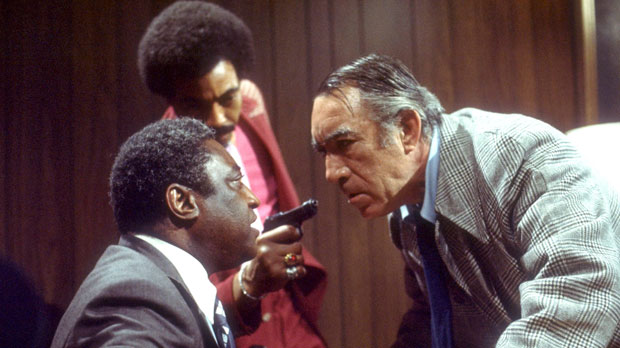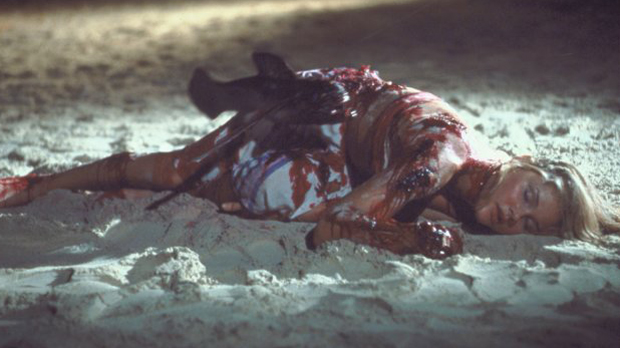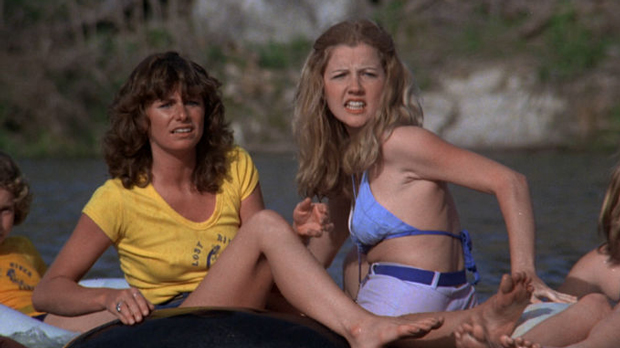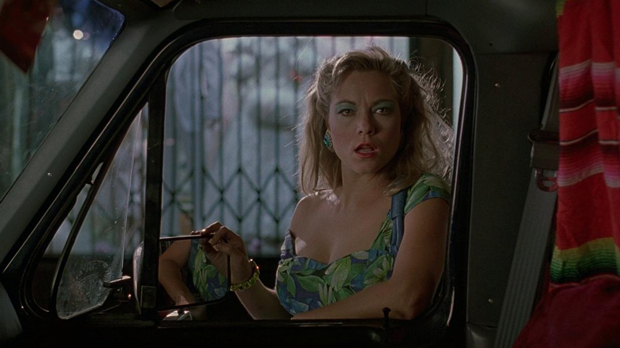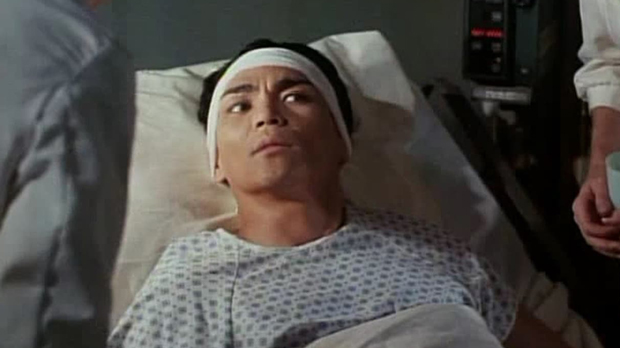 Across 110th Street (1972) United Artists/Action RT: 102 minutes Rated R (language, strong violence, brief nudity) Director: Barry Shear Screenplay: Luther Davis Music: J.J. Johnson Cinematography: Jack Priestly Release date: December 19, 1972 (US) Cast: Anthony Quinn, Yaphet Kotto, Anthony Franciosa, Paul Benjamin, Ed Bernard, Antonio Fargas, Richard Ward, Gilbert Lewis, Norma Donaldson, Marlene Warfield, Nat Polen, Tim O’Connor, Burt Young. Box Office: $10M (US)
Across 110th Street (1972) United Artists/Action RT: 102 minutes Rated R (language, strong violence, brief nudity) Director: Barry Shear Screenplay: Luther Davis Music: J.J. Johnson Cinematography: Jack Priestly Release date: December 19, 1972 (US) Cast: Anthony Quinn, Yaphet Kotto, Anthony Franciosa, Paul Benjamin, Ed Bernard, Antonio Fargas, Richard Ward, Gilbert Lewis, Norma Donaldson, Marlene Warfield, Nat Polen, Tim O’Connor, Burt Young. Box Office: $10M (US)
Rating: ****
Across 110th Street isn’t just the Bobby Womack song that opened Quentin Tarantino’s Jackie Brown; it’s also the title of a 1972 action flick that many mistakenly consider blaxploitation. Let’s set the record straight. It’s really more of an urban action movie with elements of film noir. As entertainment, it functions quite nicely. On a deeper level, it makes a statement about black power, a major issue at the time of its release. In the wake of the Civil Rights Act, black people wanted to get out from under the thumb of the white man. Director Barry Shear (Wild in the Streets) addresses the issue without allowing it to eclipse the riveting crime drama at its center.
The plot concerns the theft of $300,000 from some big-time gangsters in Harlem by three amateurs- Jim (Benjamin, Friday Foster), Joe (Bernard, Police Woman) and Jackson (Fargas, Starsky & Hutch)- disguised as cops. The robbery, which occurs in a rundown tenement apartment, goes awry and leaves five hoods and two real cops dead. The five dead hoods include members of the Mafia. The two detectives on the case, Capt. Mattelli (Quinn, The Don Is Dead) and Lt. Pope (Kotto, Live and Let Die), don’t exactly hit it off. Mattelli is racist, corrupt and brutal while Pope does his job by the book and above board. They’re going to need set that aside because time is a factor. They’re not the only ones after the crooks. Both the Mafia and the Harlem crime syndicate want them. Young capo Nick D’Salvio (Franciosa, Tenebre) has been ordered to track down the thieves and deal with them. Black crime boss Doc Johnson (Ward, The Learning Tree) has his guys out looking for them too. It’s a race to see who gets to the thieves first.
What a movie! Across 110th Street has a well-crafted plot, violent action scenes, an authentic feel and solid performances from its two leads. The central relationship is comparable to In the Heat of the Night with its old school white cop and younger educated black cop. When it comes to the job, they’re polar opposites. Where Pope questions a black suspect, Mattelli doesn’t think twice about beating information out of him. Franciosa is great as the charismatic, vicious mobster who will stop at nothing to find out who had the nerve to steal money that belongs to his people. Benjamin keeps his character real with a monologue about how the circumstances of his life forced him to resort to crime.
Shear does a fine job coordinating the action, suspense and drama in Across 110th Street. In opting to film it on the streets of Harlem, he gives the movie a gritty, authentic feel. He brings the viewer right into the trenches of the ghetto with its burned-out buildings, empty storefronts and trash-filled lots. This is what Harlem, a high-crime area with a high poverty rate, looked like in the early 70s. He also calls attention to the black power movement with Doc’s intention to push the Italians out of Harlem and take back what’s theirs.
The score, which includes songs by Womack, is funky and soulful. The cinematography by Jack Priestly has a raw, genuine feel. The pacing is just right. It’s important to realize that Across 110th Street isn’t like the 80s cops movies with their lone wolf heroes taking down 150 bad guys on their own. It isn’t filled with explosions and car chases that defy every law of physics. It has one foot in 40s detective noir and the other in 70s urban action. Bottom line, it’s a great film. I can see why QT loves it.
